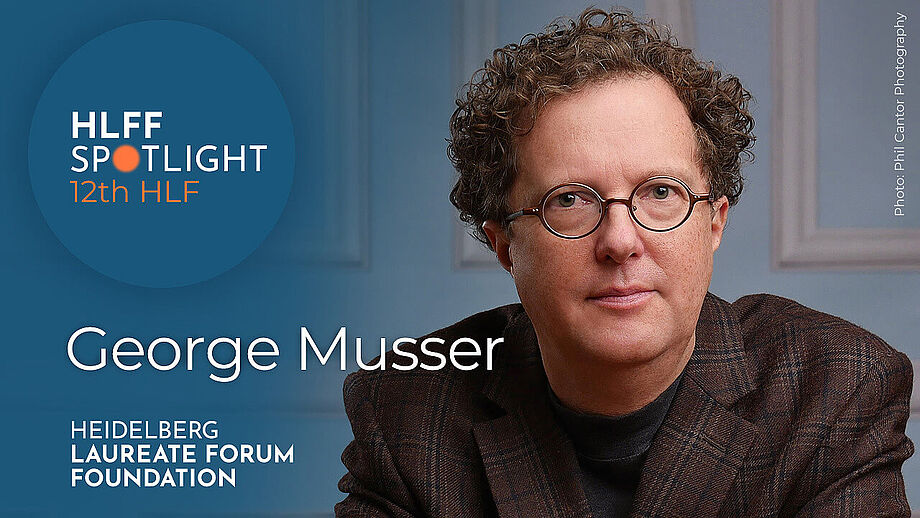George Musser
The Heidelberg Laureate Forum has a single purpose: To provide some of the brightest minds in mathematics and computer science with the space and time to make connections and find inspiration. The HLFF Spotlight series shines a light on some of the brilliant individuals attending the event.
George Musser is a science journalist based in New York. He is a contributing editor to Scientific American and Nautilus magazines and a contributing writer to Quanta magazine. As a senior editor at Scientific American, he shared in two National Magazine Awards, and his writing has also won awards from the American Institute of Physics and American Astronomical Society. He has written four books on fundamental physics and its intersection with philosophy, neuroscience, and A.I., most recently Putting Ourselves Back in the Equation. He did his undergraduate degrees in mathematics and in electrical engineering at Brown University and his graduate work in planetary science at Cornell University.
At the 12th HLF, Musser is moderating the Hot Topic Panel on “The Machine-Learning Revolution in Mathematics and Science.”
As a science journalist and someone who often translates abstract, complex physics into accessible language, what’s your approach to balancing scientific accuracy with narrative clarity?
I’m a firm believer that accessible writing isn’t “dumbing down,” but extracting the essential principles. One trick is finding the right people to ask. Lots of people are technical wizards; fewer think about the interpretive side, so I seek them out and hold them close. I don’t parrot what they tell me, but take things in to reach my own understanding. It’s incremental—I go back and forth multiple times and get things wrong at first, so humility is my superpower. The narrative clarity usually comes from framing the situation as a paradox or puzzle—something that makes you go, “Huh, that’s weird.”
In your latest book, “Putting Ourselves Back in the Equation” you explore interconnections between quantum mechanics, cosmology, human consciousness, and artificial intelligence. In the course of your research and interviews with physicists, have there been moments that fundamentally shifted how you think about the nature of reality?
I’m still a materialist, philosophically, but it’s hard to escape the feeling that we’re missing something. The hard problem of consciousness is the clearest case: Subjective experience has a richness that eludes our present style of scientific theorizing. Physics and adjacent fields are also straining under a load of puzzles, such as the meaning of quantum mechanics, dark matter and dark energy, the Fermi Paradox, the loose ends of the Standard Model of particle physics, and the unreasonable effectiveness of mathematics. My thinking on reality hasn’t really shifted yet—I wouldn’t know in which direction it would shift—but I wouldn’t be surprised if someday it does.
At the 12th HLF, you will be moderating the Hot Topic panel on “The Machine-Learning Revolution in Mathematics and Science.” Could you give us a sneak peek into the panel’s topic and why this particular development is so significant?
You can’t be a mathematician or scientist these days without engaging with machine learning, even if your main tools are a blackboard and Hagoromo chalk. It’s moving so fast. How do you keep up and use it well? Then there are systems-level questions. How will machine learning affect academic norms about reproducibility, authorship, promotion, and resource allocation? Can a machine be said to “solve” a problem if the solution is not comprehensible in human terms? Humans still play an essential role in research, but will that still be the case in the future?
